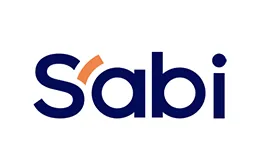Biggest tech startups in Nigeria by capital raised
In recent years, Nigeria has emerged as one of Africa’s leading countries in technology startups and innovation. This West African nation, with a population of over 200 million people, has seen impressive growth in entrepreneurship and technology, which is opening up new horizons for the economy and society as a whole.
The main drivers of this phenomenon are a young and energetic population, as well as the rapid spread of internet and mobile technology. Startups in a wide range of fields, from fintech and e-commerce to healthcare and agri-tech, are emerging in the country, offering innovative solutions to various social and economic challenges.
In addition, the Nigerian government and international investors are actively supporting the development of the startup ecosystem. Specialized funds, incubators and gas pedals are being established to provide young entrepreneurs with access to funding, mentorship and the necessary resources. With this, Nigeria is gradually becoming the tech hub of Africa, attracting the attention of investors and tech giants from all over the world.
In this article, we will talk about the key aspects of startup development, we will also take a look at the most expensive startups in Nigeria.
Startup development in Nigeria is a multifaceted process involving various factors and elements that contribute to the success and sustainable growth of the innovation sector. Let’s look at the key aspects that determine startup development in this country.
The key aspects of startup development in Nigeria
- Demographic and social factors
Nigeria has one of the youngest and fastest growing populations in the world. Over 60% of the country’s population is under the age of 25, which creates a huge potential for new ideas and entrepreneurial activity. The youth are active in the use of technology and are eager to improve their quality of life, which encourages the development of start-ups in various fields. - Technological infrastructure
The proliferation of internet and mobile technology has played a key role in the emergence of Nigerian startups. The availability of smartphones and improved internet connectivity has enabled millions of people to use digital services, creating an enabling environment for the development of e-commerce, fintech and other technology industries. - Financial support and investment
Financial support for startups in Nigeria comes from both local and international investors. Venture capital funds, business angels, as well as specialized gas pedals and incubators such as Y Combinator, 500 Startups and others are active in the country. These structures provide startups with the necessary capital, mentorship and resources for growth and development. - Government Support
The Nigerian government also plays an important role in the development of the startup ecosystem. The country has programs in place to make it easier to do business, improve the investment climate, and support innovation. One example is the Nigeria Start-up Bill initiative to create an enabling environment for start-ups and technology companies. - Educational and professional resources
Nigeria is actively developing its education and training system to produce skilled professionals in technology and business. Universities and private education centers offer programs in entrepreneurship, programming, and startup management to help young people acquire the necessary skills and knowledge. - Social Challenges and Opportunities
Startups in Nigeria often focus on solving social and economic problems such as access to financial services, health, education, and agriculture. These companies develop innovative solutions to improve the quality of life of the population and overcome existing challenges. - Global integration and partnerships
Nigerian startups are increasingly entering international markets and attracting the attention of global technology giants. Partnerships with foreign companies and participation in international experience and knowledge exchange programs contribute to the development of the local startup ecosystem and broaden the horizons for Nigerian entrepreneurs.
Startup development in Nigeria is a dynamic and multi-layered process that relies on a combination of demographics, technology infrastructure, financial support, government initiatives, educational resources and global partnerships. These aspects create a unique and fertile environment for innovation, contributing to economic growth and social progress in the country.
Nigeria’s most valuable startups
Moove ($76 million)

Moove is a Nigerian startup that provides a car rental platform. The company offers affordable and convenient solutions for personal and commercial use of cars. Moove operates as a marketplace, connecting car owners with renters.
Founders: Lami Adegoke and Olusegun Olusemogun
Investment: $76 million
Location: Lagos, Nigeria
Key features:
- Wide range of cars: Moove offers a wide range of cars to suit all tastes and budgets, from compact hatchbacks to spacious SUVs.
- Easy Renting: Renting a car through Moove is very easy. All you need to do is register, choose a car, specify the dates and times of your rental, and then pay online.
- Affordable Rates: Moove offers some of the most affordable car rental rates in Nigeria.
- Convenient terms: Moove offers flexible rental terms, allowing you to choose the most suitable option for your needs.
- Safety: Moove cares about the safety of its customers, so all vehicles are insured and undergo regular maintenance checks.
Sabi ($38 million)

In a world where access to quality education remains a challenge for many, Nigerian startup Sabi has been a breakthrough by offering affordable and effective learning solutions. Founded by Folasola Adebisi and Joshua Oludele, Sabi aims to transform the education landscape in Nigeria and beyond by providing a convenient platform for online education.
Founders and Investment
Sabi was founded by two talented entrepreneurs, Folasola Adebisi and Joshua Oludele. Through their vision and efforts, the startup attracted a significant investment of $76 million, which enabled the company to grow rapidly and expand its services.
Location and offering
Sabi is based in Lagos, one of the largest and fastest growing cities in Nigeria. The startup offers an online education platform that functions as a marketplace, connecting expert teachers with students. Unlike traditional educational institutions, Sabi provides courses in various disciplines including programming, design, business and marketing.
Key features
- Wide range of courses:
The Sabi platform offers a wide range of courses to meet the needs of both beginners and experienced students. Students can choose courses that match their interests and career goals. - Convenient learning format:
Sabi courses are available in an online format, allowing learners to study anytime and anywhere. This is especially important for people with busy schedules or limited access to traditional educational institutions. - Affordable prices:
One of Sabi’s main goals is to provide quality education at affordable prices. The startup offers some of the lowest prices for online courses in Nigeria, making education accessible to the general public. - High quality education:
Sabi partners with experienced and qualified teachers who provide a high standard of learning. Students gain knowledge from experts in their field which enhances learning. - Interactive learning:
Sabi platform utilizes interactive learning methods including video lessons, quizzes and practice assignments. This makes the learning process more engaging and promotes better learning.
Social impact
Sabi plays an important role in the democratization of education in Nigeria. By providing affordable and quality educational resources, the startup helps people from all walks of life to develop their skills and upgrade their qualifications. This is especially important when there is high unemployment and a shortage of skilled professionals in various sectors.
LemFi

Founders and their vision:
LemFi is the brainchild of two experienced entrepreneurs, Olu Bamaiu and Andreas Johnson. Combining their knowledge of fintech and their understanding of market needs, they set an ambitious goal to make the financial system more inclusive and accessible to all.
LemFi’s mission:
- To provide modern and efficient financial services to a wide range of users, including those previously excluded from the traditional banking system.
- To promote financial inclusion and empowerment of people in Africa.
Investment and location:
LemFi has raised a significant investment of $33 million, enabling the startup to significantly expand its capabilities and improve its services.
Based in Lagos, Nigeria’s largest economic center, LemFi has access to a broad market and fintech talent.
Key business areas:
- Remittances: LemFi offers fast and easy international remittance methods with low fees and favorable rates.
- Digital wallets: Convenient and secure digital wallets for storing, sending and receiving money in any currency. Integration with various payment systems and banks.
- Lending: Microcredit and other financial products to support small and medium-sized businesses.
- Payment Solutions for Business: Innovative electronic payment and financial management solutions to help businesses optimize their operations.
Technology Innovation:
- Using artificial intelligence and machine learning to analyze data and optimize services.
- Implementation of blockchain technologies to increase transparency and reliability of transactions.
Helium Health

The healthcare sector is not lagging behind in the rapid flow of technological development. Nigerian startup Helium Health, founded in 2016, has become one of the leaders in implementing innovative digital health solutions.
The founders and their mission:
Akinsika Lasisi, Victor Adeoso and Tito Owurun, founders of Helium Health, had an ambitious goal: to improve the quality and accessibility of healthcare services through digital technology. Their expertise in medicine, technology and management has created a unique platform that has already been recognized among medical professionals and patients alike.
Investment and Location:
Helium Health has raised $30 million in investment, an important step for the startup to expand and grow. The company is based in Lagos, Nigeria and utilizes its strategic location to access one of the largest healthcare markets in Africa. This investment is helping Helium Health adopt cutting-edge technologies and expand into other regions.
Scope and offerings:
Helium Health operates in the digital health (health tech) space, providing a wide range of services and solutions to optimize medical processes.
The startup offers the following key products and services:
- Electronic Medical Records (EMR): Helium Health provides a platform for maintaining EMRs, which simplifies the storage, management and access to medical information. This enables healthcare providers to improve operational efficiency and patient care.
- Telemedicine: The startup is developing telemedicine services, allowing patients to receive counseling and medical care remotely. This is especially important for remote areas where access to qualified medical care is limited.
- Clinic Management: Helium Health offers solutions for clinic management, including systems for appointment, staff and resource management. This helps healthcare facilities optimize their operational processes and improve the quality of care.
- Data analytics: The startup uses modern technology to analyze medical data to help doctors make better informed decisions and improve patient outcomes. This data can also be used to conduct research and develop new medical solutions.
- Financial Solutions: Helium Health offers financial products and services such as loans to healthcare providers, helping them improve their infrastructure and expand their ability to deliver care.
Technological Innovation
Helium Health actively utilizes advanced technologies, including artificial intelligence and machine learning, to improve its products and services. This enables the company to offer more personalized and efficient solutions for patients and healthcare providers.
Nomba

In an era of digitalization where financial technology is playing a key role in transforming the economy, Nigerian startup Nomba has emerged as one of the leaders in the field. Founded by talented entrepreneurs Ezekiel Omoregbe and Ishmael Olah, Nomba aims to make financial services accessible, convenient and efficient for everyone. The startup has already raised a significant investment of $30 million and continues to grow aggressively.
The founders and their vision
Ezekiel Omoregbe and Ishmael Olah are two experienced entrepreneurs who founded Nomba with a mission to improve access to financial services in Nigeria and across the African continent. Their goal is to create an inclusive financial system that caters to the needs of SMEs and individual users alike.
Investment and location
Nomba has raised $30 million in investment, allowing the startup to significantly expand its capabilities and improve its services. Based in Lagos, Nigeria’s largest economic center, Nomba leverages its strategic location to access a broad market and attract financial technology talent.
Scope and offerings
Nomba operates in the fintech industry, providing a wide range of financial services and solutions aimed at improving payment processes and financial management for businesses and individuals.
The startup’s core offerings include:
- Payment Solutions:
Nomba offers a state-of-the-art payment processing platform that enables businesses to accept and process payments through various channels including mobile payments, bank cards and e-wallets. This helps businesses improve their operational processes and increase revenue. - POS terminals:
The startup provides POS terminals that provide fast and secure transactions for retailers and other businesses. These devices integrate with the Nomba platform to easily manage payments and control financial flows. - Financial Management:
Nomba develops financial management tools that help businesses track revenues and expenses, analyze financial performance, and make informed decisions. These solutions simplify accounting and make financial management more transparent and efficient. - Lending:
Nomba also offers microloans and other financial products that help SMEs grow and overcome financial challenges. These services are especially important for entrepreneurs who find it difficult to obtain traditional bank financing.
Technological innovation
Nomba actively utilizes modern technologies, including artificial intelligence and big data analytics, to improve its products and services. These technologies allow the startup to offer more personalized and efficient financial solutions to its customers.
Social impact and future
Nomba aims to create an inclusive financial system that caters to the needs of all users, regardless of their location and financial capabilities. The startup is actively working to expand to other regions in Africa, with the aim of helping more people improve their financial capability and increase access to quality financial services.
Conclusion
Startups like Nomba, Helium Health, Moove, LemFi and Sabi are shining examples of how innovation and entrepreneurial initiative can transform various industries, from healthcare to financial technology to education. However, startups require significant investment to succeed and realize their potential. These investments not only provide the necessary financial resources, but also provide access to the expertise, technology, and networks of contacts that help startups grow and develop.
Investments play a crucial role in all stages of a startup’s development, from initial launch and product development to scaling and expanding into new markets. They allow founders to focus on building a quality product that meets customer needs and solves real problems. Without the necessary capital, many promising ideas could go unrealized or lose their competitive edge.
The result of successful investment attraction is the creation of innovative and in-demand products that have a positive impact on the economy and society as a whole. Investors, in turn, get the opportunity to participate in the development of promising projects and profit from their success.
Thus, investments are a key element in the startup ecosystem. They allow talented entrepreneurs to bring their ideas to life and create valuable products and services that improve the lives of millions of people. Investing in startups is not just financial support, it is an investment in a future where innovation and technology continue to drive the world forward.
.png)